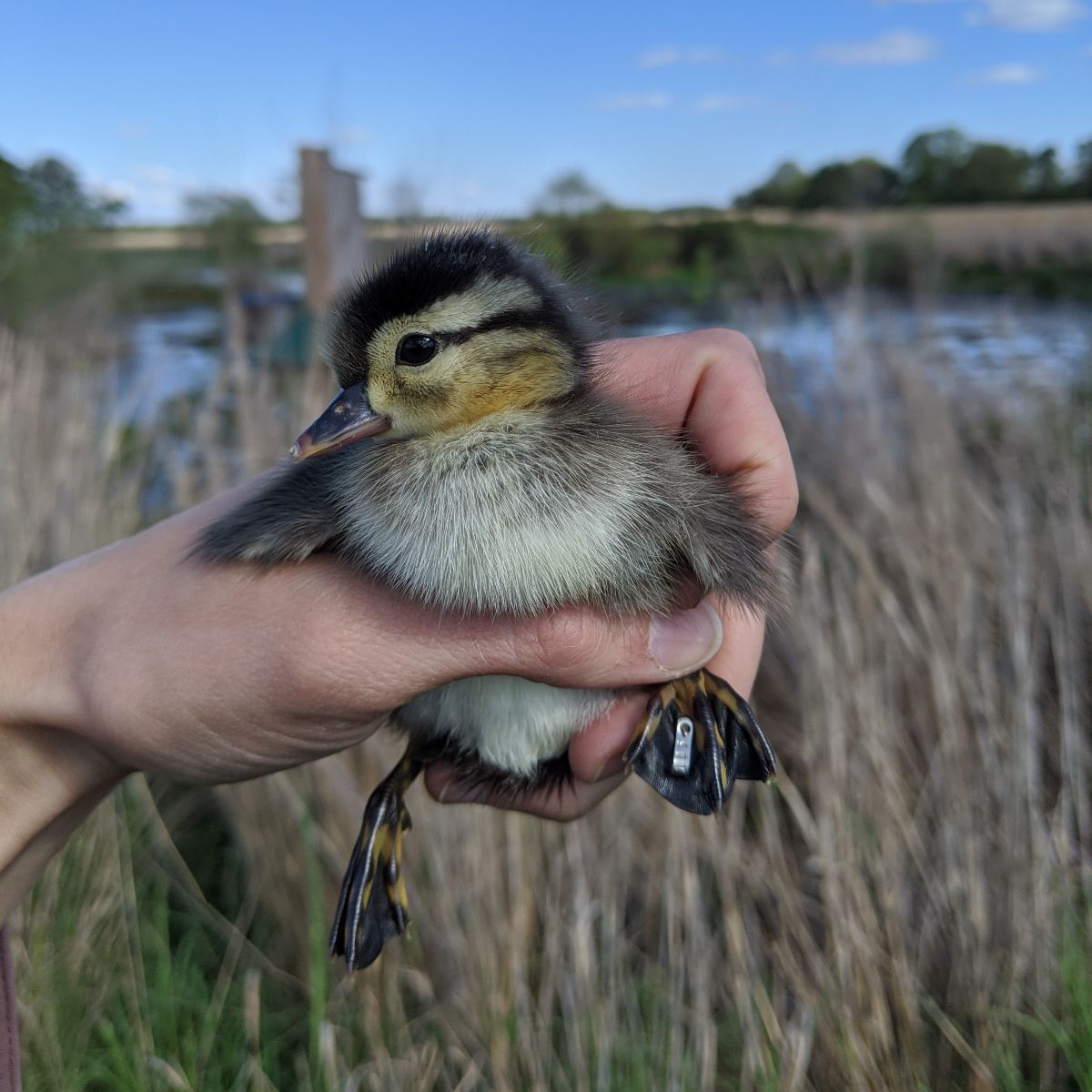
The revival of Delaware Wild Lands' (DWL) Wood Duck Box Program has come a long way, though not without fervent local support! Just four years ago, DWL partnered with the University of Delaware to learn more about wood duck box usage and best practices for nest success. This was the start of their nest box replacement efforts and the Wood Duck Conservation Initiative.
Since 2017, DWL has...
- Conducted four years of wood duck research with the University of Delaware
- Worked with six other bird species using nest boxes, including the screech owl and tufted titmouse
- Recruited 62 volunteers to participate in constructing, installing, or maintaining nest boxes
- Banded 66 adult wood ducks
- Donated and installed 93 nest boxes on DWL lands
- Web tagged 414 wood duck ducklings
Due to these efforts, DWL is thrilled to announce that nest box use and nest success have doubled!
All this would not have been possible without the tireless efforts of DWL's dedicated "wood duck warriors", research partners, donors, and supporters who work toward waterfowl and wetland conservation.
DWL's Wood Duck Conservation Initiative, wood duck box replacement and repairs, and research partnerships will continue in 2021! Please consider supporting their efforts to improve nest success and site conditions for wood ducks in any way you can.
About Delaware Wild Lands
DWL is a nonprofit conservation organization founded in 1961. They are the largest not-for-profit, non-government landowner in Delaware, with significant holdings in all three counties. They protect and restore Delaware’s important natural areas by purchasing strategic parcels of land. Traditional uses of land, such as hunting, farming, and forestry are integral to their management regime and maintained as important aspects of Delaware’s economy and cultural heritage. Their organization has played a pivotal role in the permanent protection of more than 31,600 acres of land throughout Delmarva. Today, they own more than 21,600 acres of wetlands, farms, and forests that are actively managed for improved wildlife habitat, clean air, and pure water. Learn more at www.dewildlands.org!







